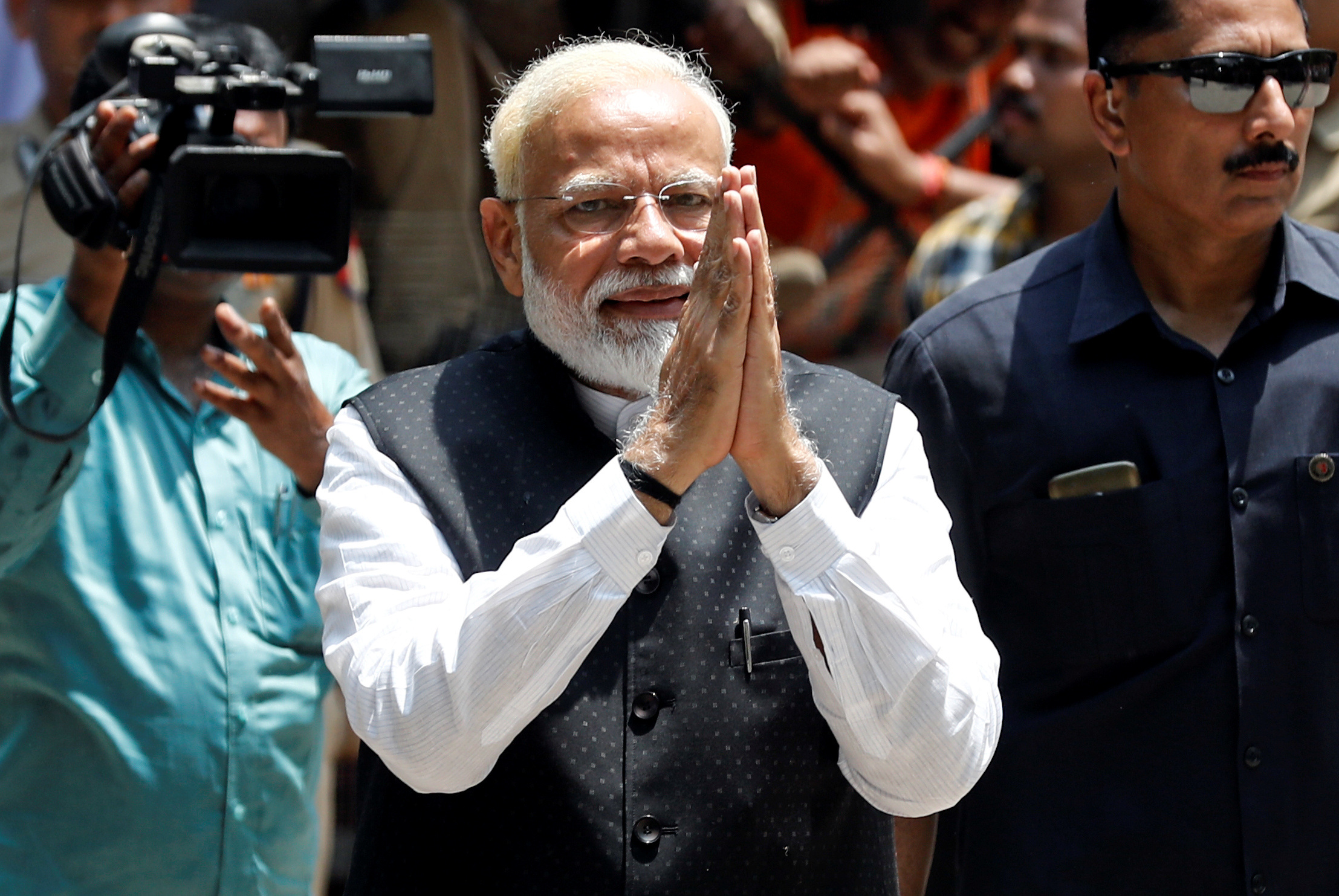Modi’s ‘personal defeat’ and loss of aura of his electoral invincibility have weakened his position as also of BJP
 KRC TIMES Desk
KRC TIMES Desk

Despite a clear mandate to iconic Narendra Modi headed NDA in 2024 Lok Sabha election to rule India for the record third consecutive term, the fact remains that he failed to get the absolute majority for BJP and consequently, diminished his dominance in Indian politics.
Modi’s ‘personal defeat’ and loss of aura of his electoral invincibility have weakened his position as also of BJP. Modi Govt is under pressure from the formidable collective opposition, resurgent Congress, its ‘dynast’ leader Rahul Gandhi who is being noticed seriously by an increasing number of people.
With this emerging political scenario, BJP is facing another round of electoral challenge in J&K and Haryana and later in Maharashtra, Jharkhand, and Delhi, just after two months of Lok Sabha poll. While the bugle for the long-awaited election in J&K UT, and Haryana has been sounded, Maharashtra Assembly term is expiring in November this year and Jharkhand, and Delhi early 2025.
This provides an opportunity to restore PM Modi’s charisma. On the other hand, it will be yet another test of unity for INDI Alliance to give a daunting challenge to Modi & BJP.
With a loss of 63 seats as compared to the 2019 poll, 2024 elections outcome was obviously not satisfying for BJP but its allies had done well which brought Modi back to power for a record third time.
In fact, BJP is to be blamed for its poor show. Overconfident BJP leaders committed one mistake after another. Modi’s call for “iss baar 400 paar” only united the opposition parties despite ideological differences and ego problems. Statement of an M P in UP that two third majority needed to amend the Constitution or make a new one, created another strong narrative that BJP would end reservation if it gets 400 seats.
Surprisingly, this statement was never contradicted. Sambit Patra’s claim “Lord Jagannath is PM Modi’s bhakt” taken as an insult to Lord Jagannath. To cap it further was the unnecessary statement of the BJP Chief that, “In the beginning we would have been less capable, smaller, and needed the RSS. Today, we have grown and we are capable.
The BJP runs itself.” Clearly, it was a snub to RSS and souring of relationship between the two arms of the saffron conglomeration, that made RSS workers less enthusiastic in the election and the result is before the nation.

Fourth June mandate was not a fractured one as the NDA had a pre-poll alliance. However, it made Modi dependent on Chandrababu Naidu (16MPs) and Nitesh Kumar (12 MPs) for his survival. This arithmetic in Lok Sabha compelled Modi to keep in mind the interest of his allies.
The 2024 budget indicates this trend which is a usual compulsion of any alliance. While there is no apparent immediate threat to the Modi led NDA Govt, things are not comfortable for Modi as challenges are increasing.
Sending Waqf Board Amendment Bill to a Joint Select Committee for seeking broad consensus and withdrawal of UPSC Advertisement for lateral entry at the level of Joint Secretary level and other posts are indicative of paradigm shift in the internal working of PM Modi due to allies pressure.
Turmoil and abrupt change of the pro-India Govt in Bangladesh to anti-India Govt, revival of terrorism in J&K, sudden talk of “resolution of Kashmir issue as per the UN charter” by UN Official, unresolved issues in sensitive border UT of Ladakh that is threatening agitation, growing anger of the middle class across the country for not getting much relief against rising price and unemployment are some of the challenges for Modi 3.0.
Recent judgment of the Supreme Court on reservation for sub categories of SC & ST and application of “creamy layer” in SC/ST is yet another challenge and Modi appears to have come under pressure from one of his Allies which is mulling to file a review petition.
Foreign forces inimical to India’s growth story are also operating against Modi. While Pakistan and China work against the Modi Govt in tandem, the USA, which was behind the change of regime in Bangladesh, is also active in India.
Its senior diplomats are in contact with opposition leaders to create bigger problems for the Modi Govt by creating a Bangladesh like situation. Credible and senior Congress and other opposition leaders have already blown the trumpet for such unrest.
Reservation and caste census to fuel ‘jitni aabadi utna haq’ are piercing instruments of a dangerous toolkit for country-wide agitation. With Congress successfully fragmentating the majority Hindu community, Conscious of the possible backlash on sensitive reservation issue Modi hurriedly withdrew UPSC notification for lateral entry of 45 experts into central bureaucracy following exploitation of reservation issue in it by the Congress and other Opposition parties. Modi has succumbed to the pressure on sensitive issues, especially on the eve of State elections.
Whether it was a sheer coincidence or design, Pakistan sponsored jehadis struck on a pilgrims’ bus in Reasi district on 9th June when Modi was sworn in as PM for third consecutive term, killing 10 pilgrims and injuring other thirty-three.
Since then, terrorist attacks are on the rise, security forces suffering huge losses. More alarming is that these incidents are taking place every three or four days and most of the time the terrorists made good their escape after martyring soldiers.
A real matter of concern is that Pakistan has succeeded in making Jammu another Kashmir in respect of terrorism, even though the possibilities of harbouring terrorists in the Jammu region was very less.
People expected strong action on these killings but it was missing except reshuffling top security brass in J&K holding them responsible for laxity. Unending martyrdom of brave hearts every now and then, has cornered the Modi Govt as it had been claiming that terrorism is dying after abrogation of the controversial Article 370.
Defeat of mainstream politician and former CM Omar Abdullah at the hands of the jailed separatist Er. Rashid clearly also indicates that separatist sentiments in Kashmir have not yet died down.

Former GOC of 15 Corps & security expert, Syed Ata Hasnain says that one small ambush is no Uri or Pulwama, but a series of small terror strikes can build fear as effective as a large one. The pattern of ambushes is almost identical, targeting mostly the army men.
Obviously, Pakistan has succeeded in pushing Jihadis from Jammu border making it alarmingly porous, and arranging shelters for them in different areas. There has been laxity on the border leading to this infiltration and intelligence failure inside the Jammu region. Almost all the ten districts of Jammu Region are affected.
Revival of terrorism cannot be controlled by strong statements and promises to delive


